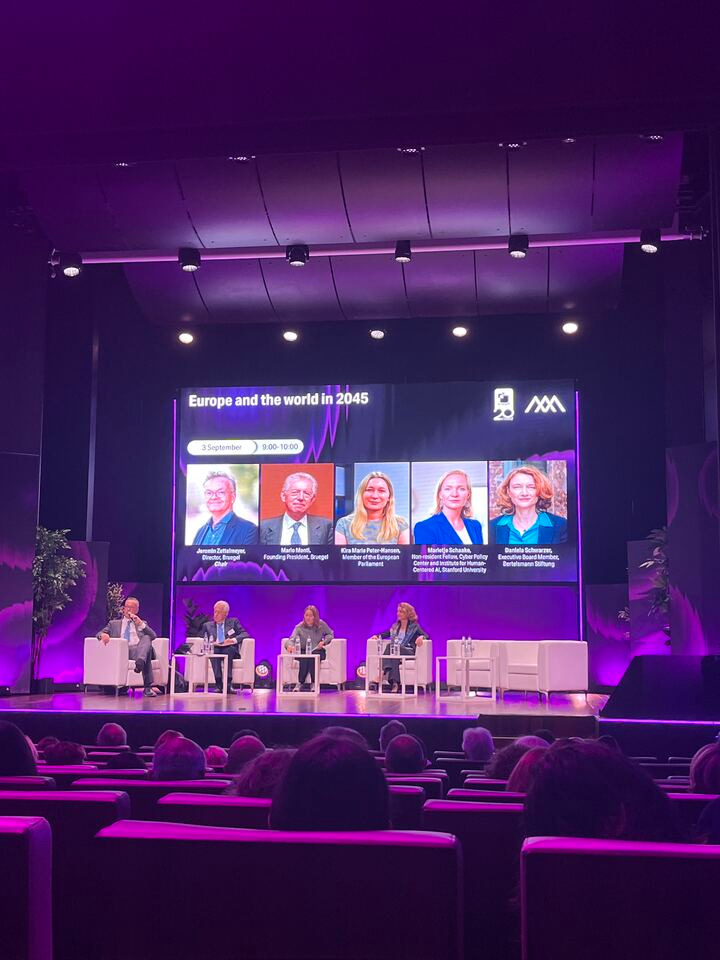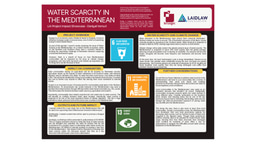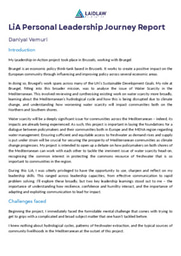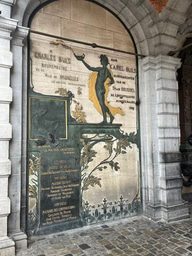Brussels LiA Week 2 - Collabor-ate?

My second week at Bruegel has been incredibly hectic – hence the delay in my post! I had some extremely memorable experiences, began to broaden my knowledge and skills into an area that I’ve never explored before, and continued to become more aware of the value of collaboration for those who are working to be at the forefront of leading for impact.
I began the week by having that discussion I mentioned in my last post with a Senior Fellow at Bruegel about the project on Climate Adaptation in the Mediterranean. I had been hoping to have this conversation throughout my first week here, as I was admittedly quite confused – interested, but confused – as to what exactly the purpose of the project was and as to what I should be focussing. This was the first of many occasions this week that reinforced the importance of collaboration to me specifically for leading for impact. It was frankly deeply rewarding to speak with someone who was so clearly an expert on the matter – the way that she was able to draw on this mastery of the topic, and pick out key resources, key research questions, key arguments was astounding. I left the conversation personally inspired to aspire for that kind of mastery one day in my own field of expertise, and to be able to pass that expertise on to someone else as I had just experienced.
Regarding the project, we narrowed down to the topic of Water Scarcity and Development in the Mediterranean. This was very helpful – I now had a clearer scope of what I needed to focus on, as well as a clear milestone to focus my direction on (I am working on creating a 1000-word box for the Asian Infrastructure Investment Bank’s annual report). I then spent this week reading various key resources that had been pointed out to me by the Senior Fellow on the economics of water and the dynamics of water scarcity in the Mediterranean. This really put me outside my comfort zone – I’m not overly familiar with climate topics, and while I was able to easily understand the economic issues around water use, the methodologies of climate modelling and the terminology of the hydrological cycle were entirely unfamiliar to me. Learning more was therefore a challenge, and this was taxing – but I held my nerve, and reframed this as an opportunity to become not quite an expert but at least more versed in a new topic.
I will say, however, that this early stage reading to understand the topic was very slow-moving, and I don’t really have much that’s tangible at the end of the week to show for it. This made it clear to me that when you are leading for impact in a data-driven manner, it's often important to understand that results may not be visible straight away. Just as importantly, I realised that you also need to collaborate with the other stakeholders that you are working with (in this case, the Senior Fellow) to be transparent about what you are achieving and working towards, as this may not always be clear when tangible outputs are not being produced.
My plan for next week is to narrow in my research to specific points and produce a first draft of some sort for the topic – this will be challenging and will require concrete research, but I’m excited for that challenge.
In terms of adapting to the environment of Bruegel, I’m really starting to feel good being here and working here. I love the academic environment and the fact that there are so many brilliant minds around this small office that are open to discussions. I think what really helped this week, though, is that a new cohort of Research Assistants joined Bruegel. I’m still the youngest person in this office by far, and the new RAs are 25 or older, but it’s meant that I’ve been able to start to develop a sense of community here in Brussels. The new RAs and the old RAs here have been extremely kind and have made an effort to include me, and I’ve enjoyed interacting with them on a personal level. A highlight was my age being guessed as 23! I’ve been told that I come across as mature for my age – I was quite pleased with that. More importantly, I’ve been able to learn so much from the other RAs. Some of their expertise is in climate for example, so I’ve been pointed to key datasets and resources to gain an understanding of water scarcity, which has been very helpful. I also have been able to ask for advice regarding what research is like, and what doing a Masters is like, which is going to be helpful going forward as I decide what the best path is for me personally to build my capacity to create positive impact.
Most memorably this week, however, I was able to attend Bruegel’s Annual Meetings. This really was quite a coincide – this year marks the 20th anniversary of Bruegel’s creation, and I just happened to be undertaking my LiA during the period where the Annual Meetings fall. At these Annual Meetings, experts and leaders from the private sector, policymakers, diplomats, academics and so many more come together to discuss the foremost issues on the European agenda. This really was fascinating. In particular, I was interested by what exactly the event was trying to achieve. The panels, while certainly interesting, weren’t exactly precise and incisive in the way an academic conference might be. That was surprising to me, as the internal Bruegel research meetings are frankly hard for me to keep up with given the intensity and quality of the discussion. The conclusion I came to, however, was that the purpose of the Annual Meetings is not to have the same intensity and conceptual calibre of conversation as a conference of academics, but rather to facilitate collaboration between the highest level of leaders. It was inspirational seeing so many people working for the future of the European community come together in one place to hash out the current complex situation Europe finds itself in.
As for me, my personal contribution to the Annual Meetings was quite unexpected. The Annual Meetings involve a dinner, which took place in the Royal Museums of Fine Art in Brussels. At this dinner, I ended up being approached by the Chinese Ambassador to the EU – very unexpected? I gave him a tour of the museum, and he gave me his business card. To be honest, that’s an experience I will not forget for a long time, and I do feel utterly privileged to be undertaking this LiA here in Brussels, and to be learning so much and working with such talented and interesting people.





Please sign in
If you are a registered user on Laidlaw Scholars Network, please sign in